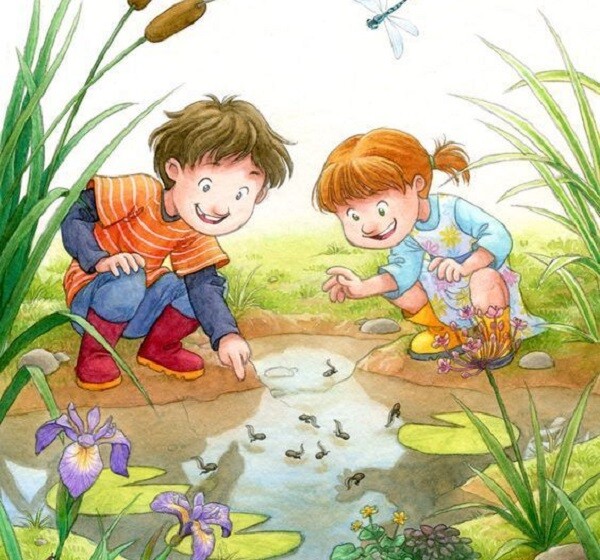As psychologist Adler stated, “Children need respect and affirmation. A lack of these can breed inferiority complexes.”
The family is a child’s first classroom. Regardless of financial status, a parent’s attitude often determines a child’s personality and future.
Within the four aspects of companionship, encouragement, freedom, and love, if parents are restrictive in their giving, it can have long-term effects on their children as they grow up.


Be a companion instead of handing over your phone and being indifferent
Psychological research shows that the quality of the relationship between parents and children does not depend on material abundance but is mainly influenced by the process of companionship and interaction between the two parties.
In fact, the moments when parents are present with their children, sharing experiences and emotions, are the decisive factors in creating bonding and love. If parents are absent during critical times, children are likely to develop a sense of “I’m not important”, affecting their relationships and sense of security.
When children feel neglected, they gradually develop fears and anxieties about acceptance and love from others. Therefore, creating bonding moments is crucial.
Parents can spend 30 minutes each day reading, dining, or conversing with their children, listening intently to their thoughts. This time helps children feel loved and develops their communication and thinking abilities.
Additionally, planning a family-friendly activity for the weekend is essential. Activities like hiking, crafting, or cooking together create beautiful memories.

Encourage your children instead of being harsh and complaining
Carnegie’s research shows that encouragement helps children see their strengths, while doubt only diminishes their self-confidence.
Positive influence from parents can profoundly affect children’s self-worth and motivate them to develop and challenge themselves in new areas.
To encourage effectively, parents should change their language habits and encourage their children in specific ways. For example, instead of merely praising, say: “This time, you diligently completed all your homework. I’m so proud of you!” Such words create a positive environment and a sense of safety for self-expression and experimentation.

Encourage your children
When children face failure, affirm their hard work instead of focusing solely on the outcome. You can say: “Although you didn’t do well this time, your preparation process was very serious. I believe you’ll do better next time.” This affirmation helps children understand that failure is not something to be feared but a natural part of learning. It also emphasizes that effort and persistence are essential for future success.
Moreover, instead of shielding them from challenges, encourage them to explore the reasons for their failures and how to improve.

Give them freedom to explore instead of intervening and restricting too much
The theory of “psychological autonomy” in psychology suggests that children need to develop a sense of understanding and control over their world through exploration and choice. This process helps them make decisions, feel confident, and take responsibility.
If parents intervene too much in their children’s choices, the children may lose interest or even develop resistance.
Therefore, set safe boundaries but, within those limits, allow your children to choose their activities or interests. For example, you can let them choose between participating in sports, learning a musical instrument, or engaging in artistic pursuits.
When they fail, analyze the reasons with them instead of directly denying their choices. Instead of saying, “You chose wrong”, ask, “What do you think were the reasons for your lack of success this time?” or “Is there anything you could have done differently to achieve a better outcome?”

Give them the freedom to explore.

Express your love instead of remaining silent and reproaching
As psychologist Winnicott said, “Children don’t need perfect parents; what’s important is that you’re willing to accompany and love them.”
In reality, children are not yet aware of an ideal environment or perfect parents. What they need is companionship and love to feel safe and accepted.
So, parents should base their actions on positive love, giving their children smiles, praise, and tight hugs. These small actions affect children’s psychology and development. A warm smile or a tight hug conveys unconditional love and a sense of security.

Growing up in a loving environment teaches them to establish positive relationships.
Moreover, consistently expressing love helps children develop better communication skills and build healthier social relationships.
As they mature in a loving environment, children open up and learn to form positive relationships. This is crucial for personality development and social skill acquisition.






































